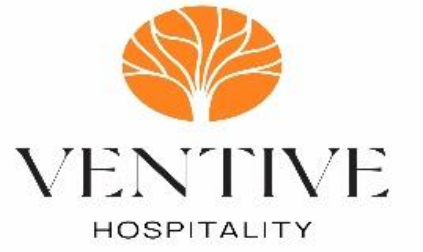
₹ 14789
₹610- ₹643
23
₹713
11

24 Dec 2024
27 Dec 2024
30 Dec 2024
Application Details
The Ventive Hospitality IPO is scheduled to open on December 20, 2024, and close on December 24, 2024. The IPO offers shares with a face value of ₹1 per share, priced within a band of ₹610 to ₹643 per share, and requires a minimum lot size of 23 shares. The total issue size comprises 2,48,83,358 shares, aggregating up to ₹1,600 crore, entirely through a fresh issue. An employee discount of ₹30 per share is also available. The IPO follows a book-built issue format and will be listed on both BSE and NSE.
Key dates include the basis of allotment on December 26, 2024, the initiation of refunds and credit of shares to Demat accounts on December 27, 2024, and the listing date on December 30, 2024. Bidders need to confirm the UPI mandate by 5 PM on December 24, 2024.
Retail investors can bid for a minimum of 23 shares at ₹14,789, with the maximum retail application allowing 299 shares at ₹1,92,257. High Net Worth Individuals (HNIs) can invest in multiples of these amounts as per their chosen lot size.
About Ventive Hospitality Limited
About Ventive Hospitality Limited
Incorporated in February 2002, Ventive Hospitality Limited specializes in the hospitality industry, catering to both business and leisure travelers. The company is focused on developing and managing high-end luxury hotels and resorts.
Hospitality Portfolio (as of September 30, 2024):
- Operates 11 hospitality assets across India and the Maldives.
- The portfolio includes 2,036 keys, spanning various upscale and luxury segments.
Hotel Operations:
Ventive Hospitality’s assets are operated by or franchised under globally renowned brands such as Marriott, Hilton, Minor, and Atmosphere.
Prime Locations:
- Hotels are situated in key business hubs like Pune and Bengaluru.
- Tourist destinations like the Maldives.
- Significant cultural and spiritual centers such as Varanasi.
FAQ
IPO stands for "Initial Public Offering." It's the process through which a privately-held company becomes publicly traded by offering its shares to the general public and listing them on a stock exchange for trading. This allows the company to raise capital from investors and grants individuals and institutions the opportunity to invest in and own a portion of the company.
The life cycle of an IPO, or Initial Public Offering, begins with a company's decision to go public. It involves hiring underwriters, registering with regulatory authorities, determining the IPO price, marketing to investors, and the subscription period where investors place orders for shares. After allocation and listing, shares become publicly tradable, and the company enters the secondary market. Ongoing reporting and corporate governance are crucial as the company continues to operate as a publicly-traded entity. The IPO aims to raise capital for growth and provides investors with opportunities to trade shares in the company.
An IPO (Initial Public Offering) is when a private company goes public by selling shares to the public. Investors buy these shares, giving them ownership in the company. It's a way for companies to raise capital and expand. The process involves underwriters, regulatory filings, setting the IPO price, and marketing to investors. After the IPO, shares can be traded on a stock exchange. IPOs offer opportunities and risks, so investors should research and consider carefully.
"Upcoming IPOs" refers to initial public offerings that have been announced by private companies but have not yet occurred. These are companies that plan to go public in the near future by issuing shares to the public and listing them on a stock exchange. Investors often keep an eye on upcoming IPOs as they represent opportunities to invest in companies at their early stages of public trading, potentially capturing growth potential. These offerings are typically accompanied by significant media and investor attention as they approach their launch dates.
 Download
Download